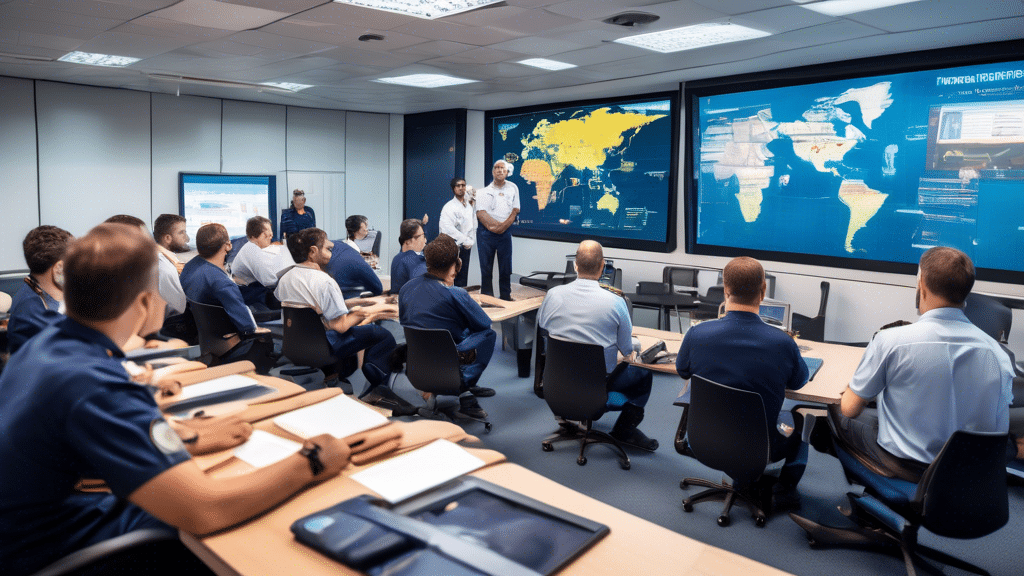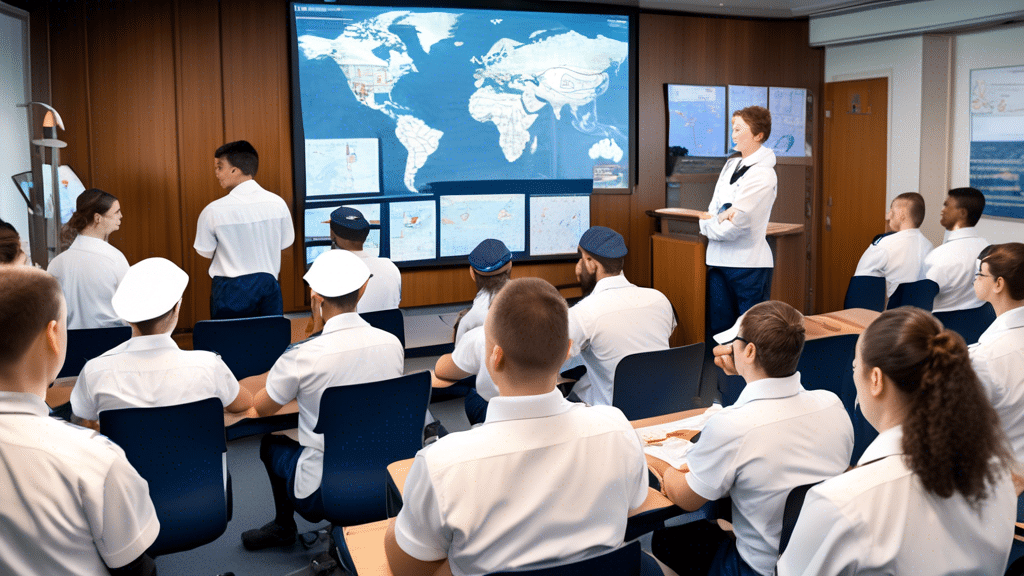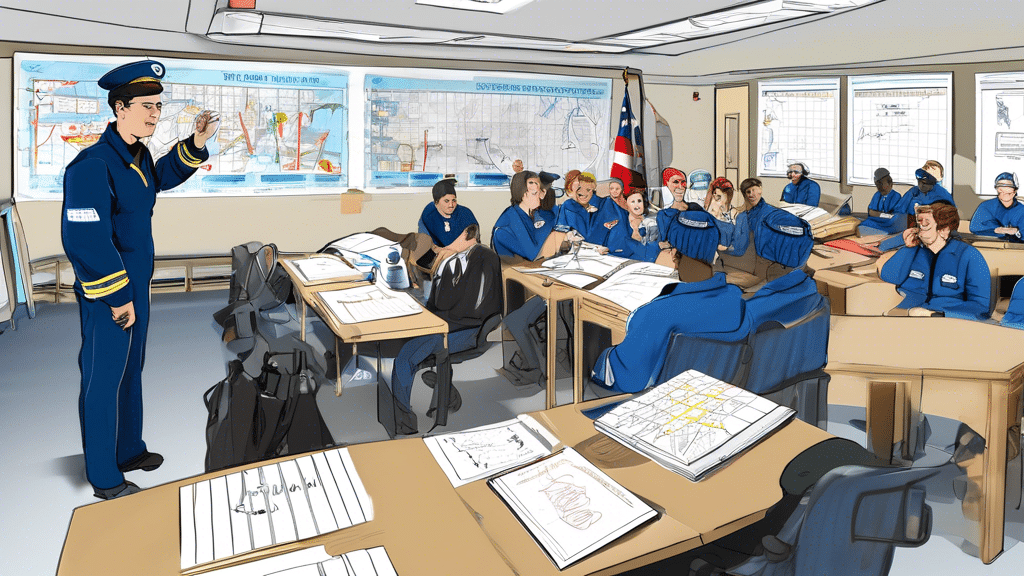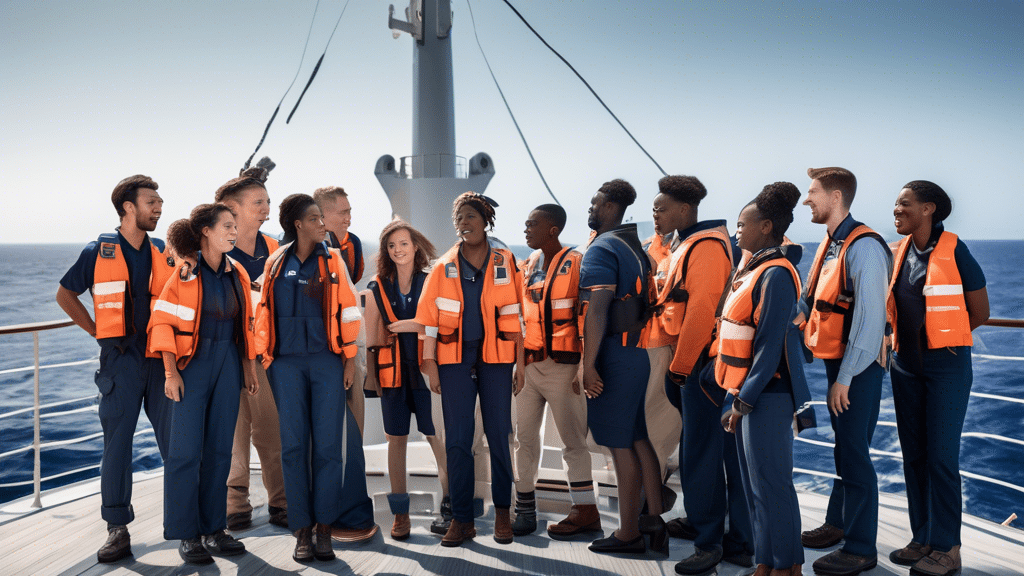Navigating a successful maritime career begins with the essential step of choosing the right STCW training, a decision that can significantly impact your professional journey on the high seas. The STCW (Standards of Training, Certification, and Watchkeeping for Seafarers) framework is crucial for ensuring that maritime professionals possess the necessary skills and knowledge to perform their duties safely and efficiently. This certification is not only a mandatory requirement for many maritime roles but also a testament to your commitment to excellence in the field.
STCW training opens doors to a myriad of career opportunities within the maritime industry. By obtaining the right certification, you demonstrate your readiness to meet international standards and regulations, positioning yourself as a competent and reliable seafarer. This strategic move can enhance your employability, provide access to higher-paying positions, and offer greater job security in a competitive global market.
When choosing STCW training, it is essential to consider several key factors to ensure you make the best decision for your career aspirations. Start by identifying your specific career goals within the maritime industry and determine which STCW courses align with these objectives. Evaluating accredited training institutions and their course offerings is another critical step, as accreditation ensures that the training meets international standards and is recognized globally.
Additionally, consider the format of the courses—whether they are available online or require in-person attendance—and how flexible the schedule is to accommodate your commitments. Reviewing testimonials and success rates of various STCW programs can provide valuable insights into the quality of training and the experiences of past attendees, aiding in your decision-making process.
Embarking on the right STCW training path is a pivotal move toward advancing your maritime career, ensuring you are well-equipped with the necessary skills and credentials to excel in this dynamic and challenging field.
Understanding STCW and Its Importance in Maritime Careers
When it comes to pursuing a successful maritime career, one term you will frequently encounter is STCW (Standards of Training, Certification, and Watchkeeping for Seafarers). Established by the International Maritime Organization (IMO), STCW sets the global standards for the training, certification, and watchkeeping of seafarers. But what exactly is STCW, and why is it so crucial for maritime professionals?
STCW is essentially a comprehensive framework designed to ensure that seafarers are adequately trained and qualified for their respective positions on board various types of ships. This framework not only encompasses the basic competencies required for all seafarers but also includes specialized training for specific roles such as deck officers, engineers, and other key personnel. These regulations aim to enhance maritime safety, protect marine environments, and promote international consistency in maritime operations.
Why STCW Certification is Essential for Maritime Professionals
In the maritime industry, safety and efficiency are paramount. Therefore, possessing the right STCW certification is not just a regulatory requirement but a vital component of a seafarer’s professional toolkit. Here’s why obtaining STCW certification is essential:
- Compliance with International Regulations: Nearly all countries that are members of the International Maritime Organization (IMO) require seafarers to have STCW certification. This ensures that crews on international voyages meet uniform standards, leading to safer and more efficient maritime operations.
- Skill Enhancement: STCW training provides both basic and advanced maritime skills essential for various job roles. From fire prevention and firefighting to advanced navigation techniques, these courses equip you with practical skills that are indispensable for your safety and efficacy on board.
- Increased Employability: STCW certification is often a prerequisite for many maritime positions. Employers seek candidates who are not only compliant with international standards but also demonstrate a commitment to professional development, making STCW-certified individuals more competitive in the job market.
- Career Advancement: In addition to making you eligible for initial employment opportunities, having the right STCW certifications can significantly impact your career trajectory. Advanced certifications and endorsements are often required for promotions and specialized roles, making continuous STCW training vital for long-term career growth.
- Enhanced Safety and Preparedness: Maritime careers can be fraught with unpredictable challenges. STCW training prepares you to handle emergencies effectively, minimize risks, and thus contribute to the overall safety of the crew and vessel. This preparedness is not only essential for your well-being but also for maintaining the integrity of maritime operations.
Detailing the Career Benefits of Obtaining the Right STCW Training
Pursuing the appropriate STCW training for your career aspirations can yield numerous benefits. Here are some of the key advantages:
- Access to a Global Job Market: With an STCW certificate, you can apply for maritime positions worldwide. Many international shipping companies operate under the flag of STCW-compliant countries and therefore seek candidates who meet these international standards. This global recognition opens up a myriad of opportunities that would otherwise be inaccessible.
- Higher Salary Potential: Maritime professionals who hold advanced STCW certifications often command higher salaries. Specialized roles such as Master Mariners, Chief Engineers, and other senior positions require advanced STCW training and offer correspondingly higher compensation packages. Thus, investing in STCW training is a strategic move for financial advancement.
- Job Security: The maritime industry is highly regulated, and as such, compliance with STCW standards is mandatory. Having the appropriate certifications ensures you remain in good standing with regulatory bodies, enhancing your job security. Employers are inclined to retain and promote staff who adhere to these essential standards.
- Versatility and Adaptability: The diverse range of courses and certifications available under the STCW framework allows you to diversify your skillset. Whether you are transitioning to a new role within the maritime sector or seeking specialized positions, having a broad array of STCW certificates enables you to adapt to various job functions seamlessly.
- Continuous Professional Development (CPD): Maritime professionals are encouraged to engage in continuous professional development through advanced STCW courses. Keeping your knowledge and skills current not only ensures compliance with evolving regulations but also empowers you to implement the latest best practices in maritime operations.
- Networking Opportunities: Enrolling in STCW training programs often brings you into contact with other like-minded professionals, industry experts, and potential employers. These networking opportunities can be invaluable for career growth, offering insights, mentorship, and potential job leads.
In summary, understanding the framework and importance of STCW certification is crucial for aspiring and experienced maritime professionals alike. This certification not only ensures compliance with international regulations but also significantly enhances your skills, employability, and career prospects. Therefore, investing in the right STCW training is a strategic move that can yield substantial long-term dividends in your maritime career.
https://www.virtualmaritime.academy/vma-courses/
Key Factors to Consider When Choosing STCW Training
Identifying Your Specific Maritime Career Goals and Required STCW Courses
Before enrolling in any STCW (Standards of Training, Certification, and Watchkeeping for Seafarers) course, it’s crucial to identify your specific maritime career goals. Different roles within the maritime industry require different types of STCW certification. For example, if your goal is to work on a cruise ship, you may need to complete STCW Basic Safety Training, which includes modules such as Personal Survival Techniques and Fire Prevention and Fire Fighting. On the other hand, if you aim to become a marine engineer, additional courses such as Engine Room Resource Management and Advanced Fire Fighting might be necessary. Assess your career objectives and consult with maritime professionals to determine the STCW courses that align with your career path.
Evaluating Accredited Maritime Training Institutions and Course Offerings
Once you have a clear idea of your career goals, the next step is to evaluate accredited maritime training institutions. Accreditation from recognized bodies such as the International Maritime Organization (IMO) or national maritime authorities ensures that the training provided meets international standards. Research various training institutions and compare their course offerings, ensuring they provide the specific STCW courses you need. It’s also beneficial to check if the institution offers advanced courses or continuous professional development opportunities, which can be crucial for career progression.
Considering the Course Format and Schedule Flexibility
The format of STCW courses can vary, with options for online, in-person, or hybrid training. Online courses offer flexibility, allowing you to complete modules at your own pace, which can be ideal if you are currently employed or have other commitments. However, certain aspects of STCW training, particularly those involving practical skills, may need to be conducted in person. Evaluate your own learning style and schedule to decide if an online, in-person, or hybrid course is the best fit for you. Moreover, consider the course schedule and frequency; institutions that offer multiple start dates throughout the year can provide greater flexibility for planning.
Reviewing Testimonials and Success Rates of STCW Programs
One effective way to gauge the quality of an STCW training program is by reviewing testimonials and success rates. Feedback from former students can provide valuable insights into the course content, teaching quality, and overall experience. Look for testimonials on the institution’s website, social media platforms, and independent review sites. Additionally, inquire about the success rates of the program – a high completion rate and strong job placement record can be indicators of a robust training program. Gathering information from multiple sources will help you make a more informed decision.
Securing the appropriate STCW training is a pivotal step in advancing any maritime career. The significance of the Standards of Training, Certification, and Watchkeeping for Seafarers (STCW) cannot be overstated, as it establishes a globally recognized benchmark for the skills and knowledge required of maritime professionals. Obtaining STCW certification not only enhances the safety and efficiency of maritime operations but also opens up a wide range of career opportunities and progression paths within the industry.
When selecting the right STCW training, it is crucial to start by identifying your specific career goals and the corresponding STCW courses you will need. Each maritime role demands a unique set of skills and certifications, and tailoring your training to align with these requirements ensures you are adequately prepared for your chosen path.
Equally important is evaluating the credibility and accreditation of maritime training institutions. Ensuring that the selected programs have the necessary endorsements from relevant maritime authorities guarantees the quality and legitimacy of the training you will receive. Take the time to review and compare different course offerings, considering factors such as content, duration, and teaching methodologies.
The delivery format of the courses, whether online or in-person, is another vital consideration. Depending on your current employment status, personal learning preferences, and time constraints, you may find one format more convenient than the other. Flexible course schedules can accommodate those who need to balance training with other commitments.
Lastly, leveraging testimonials and success rates from previous trainees can provide valuable insights. Feedback from graduates who have successfully navigated their maritime careers post-training can highlight the practical effectiveness of the programs and guide you in making an informed choice.
In conclusion, choosing the right STCW training requires careful consideration of your career aspirations, thorough evaluation of training institutions, and an understanding of the course formats that best fit your needs. By making an informed decision, you can secure the certifications necessary to advance your maritime career while ensuring you are well-prepared to meet the industry’s rigorous standards and demands.














